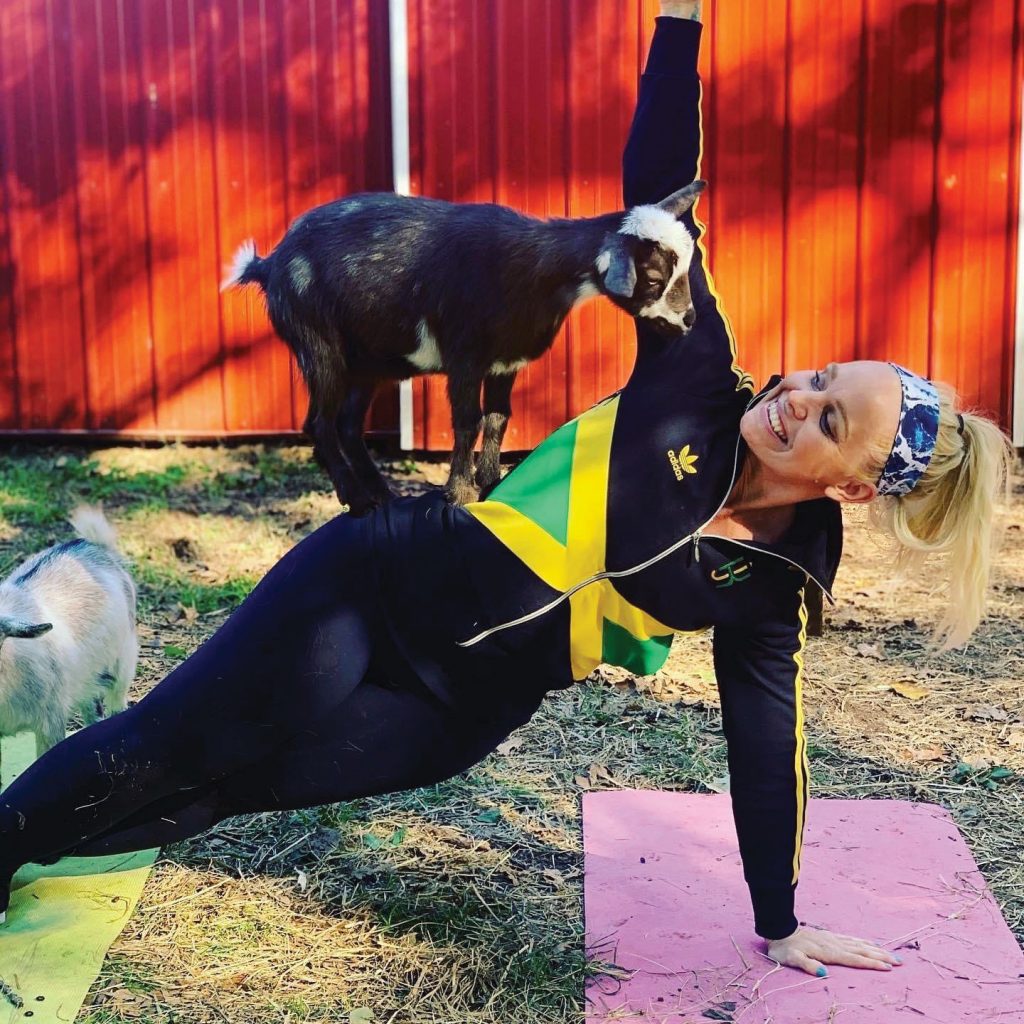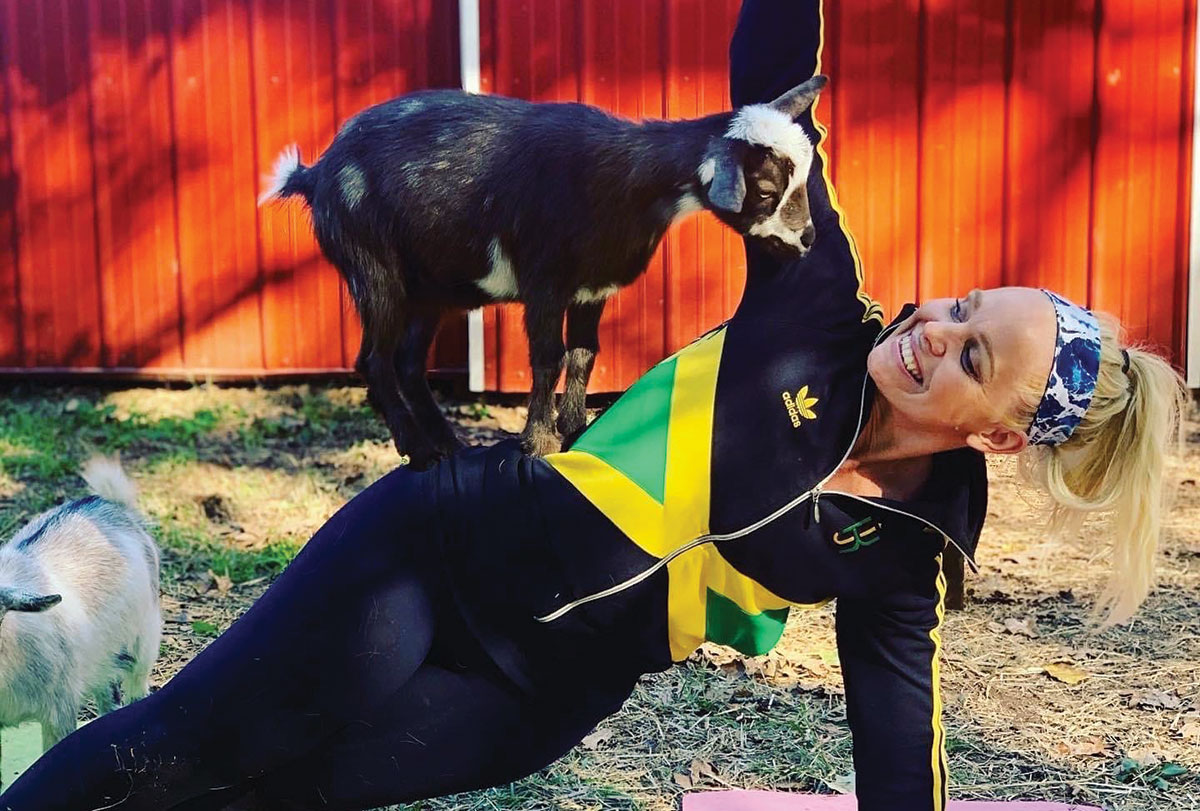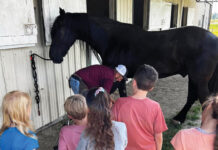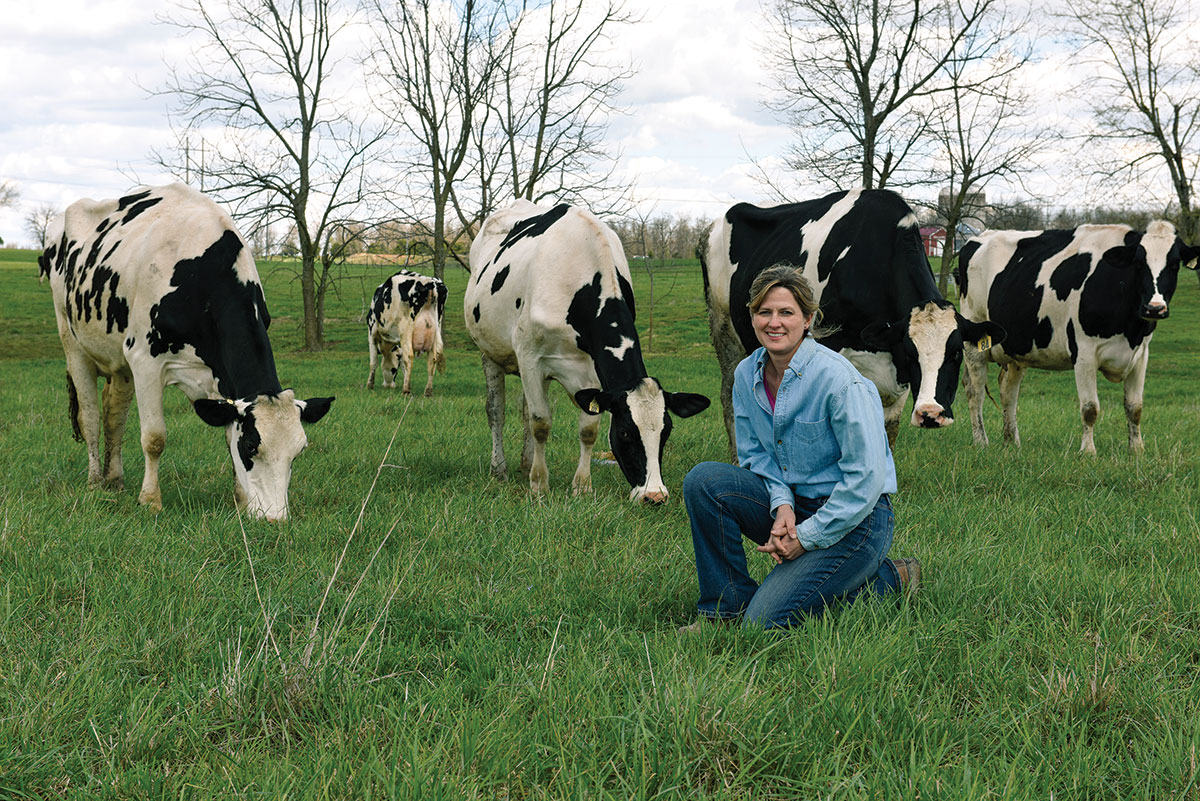
Stephanie Wubbena uses her Nigerian Dwarf goats to connect clients to the farm
Nigerian Dwarf goats are hardy and productive, traits Stephanie and Eric Wubbena of Fordland, Mo., have capitalized on at their 7 Springs Farm. Their nearly 40-head herd has many purposes, in addition to being adorable.
All of Stephanie’s Nigerians are registered with the American Goat Society. She has nearly every color pattern in her herd, resulting in beautiful, colorful kids. Nigerians are breed well any time of year, and Stephanie structures her breeding program to have kids year-round. The year-round breeding allows her to have milk year round, and well as plenty of kids available for her farm’s agritourism activities. She also sells goat kids to the right homes.
Stephanie’s goat kids are dam raised. They are handled frequently and the mothers love attention, so the kids grow up quite fond of humans. Two to three weeks after birth, Stephanie will begin to separate the kids from their dams at night so she can milk the next morning before turning everyone out together again. This method keeps her from having to bottle feed, she says, while still having fresh milk for her family. Despite their small size, the 7 Springs Nigerians are quite productive in the dairy department.
The adult goats and kids at 7 Springs are rather famous around the Ozarks. Stephanie’s 12-acre farm is home to Goats and Yoga. Stephanie is a certified yoga instructor, and every Saturday from April through November, weather permitting, she leads a yoga class in a designated paddock where visitors can enjoy some stretching, movement, and plenty of goat interactions. Folks love the opportunity to connect to the farm, and Stephanie loves to share that with people.
“These classes are about yoking together people and animals in a place that’s comfortable, and safe for the animals,” Stephanie said.
Other agritourism activities offered by 7 Springs include farm tours, private goat and yoga parties, bunny meditation with the farm’s resident American Blue and Mini Lop rabbits, “Goat Grams,” and soon, hiking with goats.
Stephanie’s multipurpose goat herd consists of 18 males, three of which are bucks, and 16 does; the number of kids at any given time fluctuates.
The bucks and wethers are have a diet of strictly pasture for as long as possible throughout the year, thanks to the farm’s paddock system for rotational grazing. Stephanie noted that the males tend to be less odiferous and have fewer urinary tract issues when forage from the pasture is their primary diet. The does receive a dairy goat ration during gestation and lactation periods and have access to good quality grass hay and pasture year-round. When does are not pregnant or milking, they receive a basic sweet feed ration, along with their forage. The whole herd also receives a goat-specific loose mineral.
Once the Nigerians in the 7 Springs herd reach a year of age, they receive a copper bolus twice annually to meet the high copper requirements of goats. They also receive a CDT vaccine. Kids get their first shot at 8 weeks, with a follow-up booster three weeks later, and after that it becomes part of Stephanie’s annual herd health plan. Deworming is done as needed.
Stephanie is extremely hands on with her goats and she does a daily fecal observation, so she knows immediately when an issue arises. When goats do require deworming, she rotates between Ivermectin and Permethrin.
Prior to kidding, does receive a Bose shot. Hoof trimming happens several times a month at 7 Springs to keep the goat’s hooves as short as possible for their yoga class appearances and safety of the guests.
Stephanie rarely has notable health issues with her goats, something she attributes to purchasing good quality animals to build her herd.
“It starts with great stock,” she said.
She plans to continue to raise excellent quality Nigerians and to keep building her agritourism business to connect more people to the farm.







